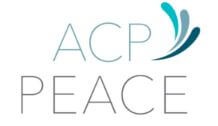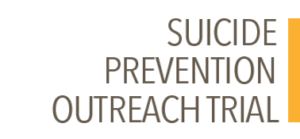At this year’s annual meeting of the NIH Pragmatic Trials Collaboratory Steering Committee, we interviewed investigators from 3 NIH Collaboratory Trials in different phases of the trial life cycle. IMPACt-LBP launched last fall and is completing its 1-year planning phase. ACP PEACE is nearing the end of its implementation phase. SPOT ended last year and published its main outcomes in February.
Learn more about these innovative NIH Collaboratory Trials in the brief video updates below.
 IMPACt-LBP, currently in the 1-year planning phase, will evaluate implementation of the American College of Physicians guideline for low back pain, which involves multidisciplinary collaborative care that includes doctors of chiropractic and physical therapists. The study will measure the effects of first-contact patient referral to these clinicians on physical function, pain, opioid prescriptions, and other patient-level outcomes. The study is administered by the National Center for Complementary and Integrative Health with additional support from the National Institute of Arthritis and Musculoskeletal and Skin Diseases and the National Institute of Child Health and Human Development. The project is led by Drs. Christine Goertz, Adam Goode, and Hrishikesh Chakraborty of Duke University and Dr. Jon Lurie of Dartmouth Hitchcock Medical Center. Learn more about IMPACt-LBP.
IMPACt-LBP, currently in the 1-year planning phase, will evaluate implementation of the American College of Physicians guideline for low back pain, which involves multidisciplinary collaborative care that includes doctors of chiropractic and physical therapists. The study will measure the effects of first-contact patient referral to these clinicians on physical function, pain, opioid prescriptions, and other patient-level outcomes. The study is administered by the National Center for Complementary and Integrative Health with additional support from the National Institute of Arthritis and Musculoskeletal and Skin Diseases and the National Institute of Child Health and Human Development. The project is led by Drs. Christine Goertz, Adam Goode, and Hrishikesh Chakraborty of Duke University and Dr. Jon Lurie of Dartmouth Hitchcock Medical Center. Learn more about IMPACt-LBP.
 ACP PEACE, currently in the implementation phase, is testing an advance care planning program that combines clinician communication skills training and patient video decision aids. ACP PEACE is focused on patients with advanced cancer and their clinicians in oncology settings. The study is administered by the National Institute on Aging and is led by Drs. Angelo Volandes and James Tulsky of Harvard Medical School. Learn more about ACP PEACE.
ACP PEACE, currently in the implementation phase, is testing an advance care planning program that combines clinician communication skills training and patient video decision aids. ACP PEACE is focused on patients with advanced cancer and their clinicians in oncology settings. The study is administered by the National Institute on Aging and is led by Drs. Angelo Volandes and James Tulsky of Harvard Medical School. Learn more about ACP PEACE.
 SPOT, a recently completed pragmatic trial that published its main outcomes earlier this year, compared 2 low-intensity outreach programs—care management and dialectical behavior therapy skills training—to usual care in adults at risk of self-harm or suicidal behavior. The study was administered by National Institute of Mental Health and was led by Dr. Greg Simon of the Kaiser Permanente Washington Health Research Institute. Learn more about SPOT.
SPOT, a recently completed pragmatic trial that published its main outcomes earlier this year, compared 2 low-intensity outreach programs—care management and dialectical behavior therapy skills training—to usual care in adults at risk of self-harm or suicidal behavior. The study was administered by National Institute of Mental Health and was led by Dr. Greg Simon of the Kaiser Permanente Washington Health Research Institute. Learn more about SPOT.





 NIH Collaboratory researchers in 2021 shared study results, generated new knowledge, and developed innovative research methods in pragmatic clinical trials. Their work included insights from the Coordinating Center and
NIH Collaboratory researchers in 2021 shared study results, generated new knowledge, and developed innovative research methods in pragmatic clinical trials. Their work included insights from the Coordinating Center and  In this Friday’s PCT Grand Rounds, investigators from the Suicide Prevention Outreach Trial (SPOT), an NIH Collaboratory Trial, will announce the study’s primary results.
In this Friday’s PCT Grand Rounds, investigators from the Suicide Prevention Outreach Trial (SPOT), an NIH Collaboratory Trial, will announce the study’s primary results. NIH Collaboratory researchers in 2020 reported study results, generated new knowledge, and developed innovative research methods in pragmatic clinical trials. Their work included insights from the Coordinating Center and
NIH Collaboratory researchers in 2020 reported study results, generated new knowledge, and developed innovative research methods in pragmatic clinical trials. Their work included insights from the Coordinating Center and 